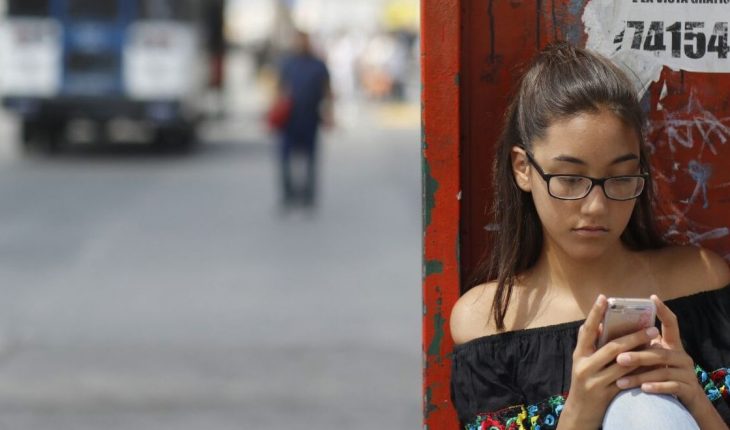In 2016, the National Commission to Prevent and Eradicate Violence against Women (CONAVIM) conducted a survey of 808 women users of public transport in Ciudad Juárez to measure the level of sexual harassment they suffered in these spaces. As a result, 58.9 percent of women were found victims of gender-based violence during their journey in the truck.
48 percent said sexual harassment is the most common type of violence within urban transport. To expose the feelings of the victims, YoCiudadano collected more than five testimonies from women of different ages and occupations who have suffered sexual harassment within a rutera.
Lucia was 16 on her way to high school in winter time. She was wearing black corduroy trousers and it was the first time she went to school alone. Remember that you took the New Land route and left all the way. In front of her, in the seats that were left sideways, were two or three masons who had their hands stained with plaster.
“Suddenly I felt the gentleman touch my genitals above my trousers. I didn’t feel so sorry because my pants were thick. When I turn around, I see that he has his hand there and it disgusted me because his hand was full of plaster; I don’t know why I was so disgusted by that, I don’t know how to explain it, I really think it would have been the same if I hadn’t brought plaster but I was very marked that I had dirty hands.”
Read: ITAM eliminates threat of running to anyone who violates confidentiality about allegations of harassment
For several minutes Lucia lay motionless. The stalker kept touching her without turning to see her while acting “as if nothing happened.” When Lucia was able to react, it was time to get off the ruther; realizes that he dared not denounce what had happened.
The CONAVIM survey found that the average age of public transport users was between 12 and 74 years of age and that 65.9 per cent of women made no complaints.
Jimena was also sexually harassed once she was on her way to the Historic Center. She says she was sitting in the seat facing the truck window when a man sat next to her even though there were more empty places.
“I begin to notice that the boy is moving, i flipping and the boy was touching himself next to me, waving his limb. What I did was be in shock, but there were already like two traffic lights left for me to get off. When I had to get off I pushed him, he looked surprised, he got into his limb and I got off,” he says.
On August 25, the Municipal Institute of Women (IMM) announced the launch of a campaign against street sexual harassment in the Central Zone, which aims to raise public awareness of this serious problem.
Find out: Tec de Monterrey students zoom out against bullying; reporting protocol is useless, they report
Prior to the start of the campaign, the IMM conducted research by surveying women transiting the Centre; with these studies they found that 70 percent of women have had to change some things of their daily life before going out on the street, such as choosing to use private transport in public place, even if this represents a higher expense.
As a result, the IMM has also made interventions in trucks and at some stops in the city’s first painting because in their research, they were referred to as one of the main points where harassment occurs.
The stop of the Monument to Benito Juárez and that of Velarde street, on the corner with Vicente Guerrero, were those identified with the greatest incidence, while the routes intervened were the South West, University and Juárez Zaragoza.
In total, it indicates the IMM’s Social Communication Coordinator, Alejandra Rodríguez Matamoros, have carried out 20 interventions on each of the lines and another 10 in the Ecobus units.
Interventions consist of placing stickers and posters on trucks with legends that seek to prevent sexual harassment, such as “rejecting street sexual harassment is also healthy distance” and “not touching a woman without her consent is also healthy distance.” They’ve also handed out cover covers with the same phrases.
You may be interested: After 6 months of unemployment against harassment, UNAM Economics students achieve their demands
Most of the women who gave their testimonies ensured that they were lonely and unprotected because they received no support from the people in the truck. Such is the case of Adriana, who was sexually harassed by the driver’s assistant.
“I was standing there and the driver beckoned him to go get something from behind. I was still holding on. of the handrail, with music on his headphones and the boy came up to me and pushed me but with a sexual connotation. The boy went back and laughing at what he had done,” he says.
As this happened twice, Adriana went to complain to the driver, who instead of helping her scuffle and told her “the arrimones are very good.”
There is also the case of Claudia, who chose to defend himself from his assailant and, by kicking him when he got up, received bad looks from all the people in the truck.
“After the blow and how people looked at me, I was the one who felt bad, as a culprit, because they didn’t know what had happened and I looked like someone rude kicking someone in the truck,” he adds.
According to the results of the So We Are Juarez 2019 survey, the population awarded a rating of 5.52 – being 1 reprehenstory and 10 approval – to public transport and one of 7.15 to the Vivebus.
Although the second got a better rating, it’s also a public space where harassment occurs. Valeria suffered it last week, when she boarded him at Gran Patio station.
“I was wearing a skirt and two gentlemen who were drinking beer started telling me things. When the truck was pushing through inertia, one of them was taking the opportunity to touch my legs. I was doing everything I could to avoid contact, but I found out that he was moving towards me to touch me, and until they got off they kept talking to me or asking me awkward questions,” he says.
In the other testimonies, most of the time the women who were harassed went in the sales seat and received touches without their consent on their legs; the feelings they lived in were of anguish, shock, anger and helplessness.
*Note: The names of the victims were changed to protect their identity.
What we do at Animal Politics requires professional journalists, teamwork, dialogue with readers and something very important: independence. You can help us keep going. Be part of the team.
Subscribe to Animal Politics, receive benefits and support free journalism.#YoSoyAnimal
translated from Spanish: Juarez women tell harassment experiences on public transport
September 27, 2020 |





